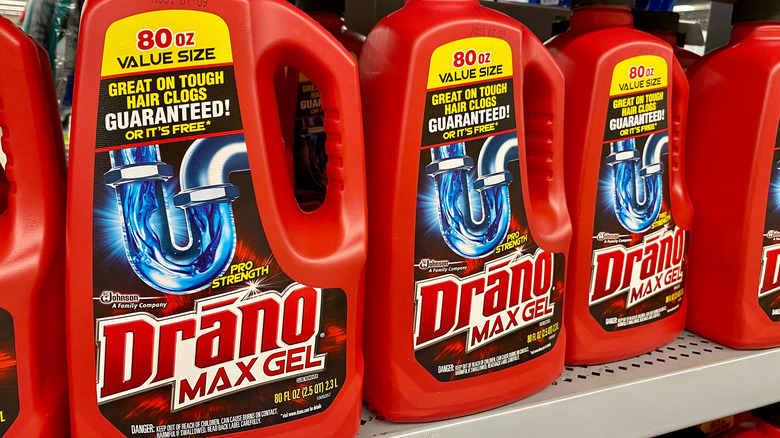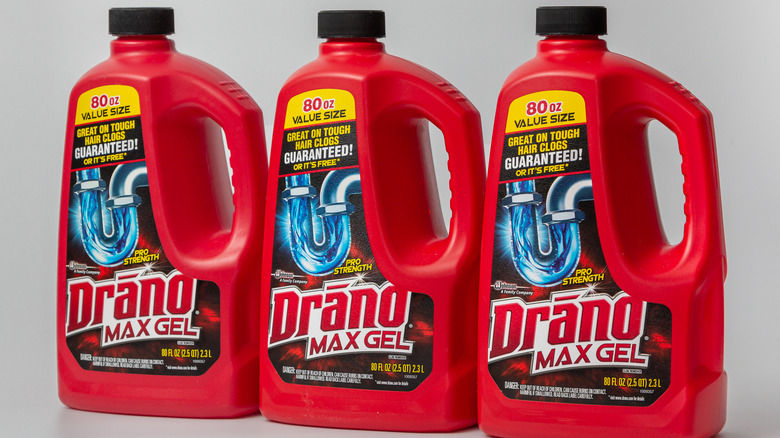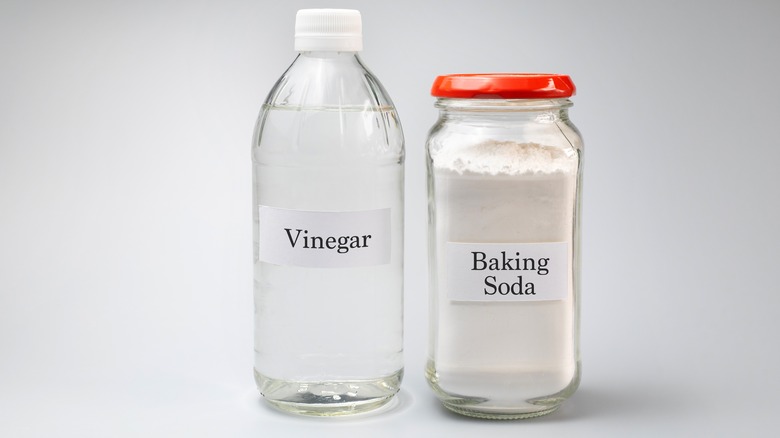Why Plumbers Warn To Avoid Drano In Your Pipes
Clogged or backed-up pipes are almost inevitable, and while it's certainly not pleasant to deal with, a quick cycle or two of Drano can clear them out. However, just because it's easy and accessible doesn't mean it's necessarily the best choice. Drano is such a powerful drain unclogger due to how corrosive it is; unfortunately, this isn't always a good thing.
Drano is a lye-based product. Lye can degrease your pipes, but it also quickly eats through any type of organic matter. This can comprise hair and other build-ups clogging your drains, but it can include the pipes themselves. In worst-case scenarios, piping glue can dissolve, porcelain toilet bowls can crack, and PVC pipes can collapse or melt. What started as a simple cleanup could lead to a total breakdown of your entire plumbing system if the Drano reacts badly, which will cost you significant time and money to repair.
Corrosive and dangerous
Drano is more damaging than just a simple lye-based product. Lye is the first performer in a series of intense and corrosive chemical reactions, starting by removing any organic matter in your pipes. The popular product also contains aluminum, which reacts with the lye and significantly raises the temperature, which is meant to help expedite the clog breaking down. Finally, the lye comes back into play to create a soap that's acidic enough to dissolve that organic matter.
Another reason Drano isn't recommended is because of its negative environmental impact. Once it makes its way through your pipes and drains, it enters the local water supply. Lye is hardly a good chemical in sewage systems and can pose severe threats to local wildlife. Finally, the corrosive nature of the chemicals isn't limited to your drains — it's a major skin and eye irritant and can even damage your lungs if inhaled.
Alternative method to unclog your drain
Just because you shouldn't use Drano doesn't mean you can't unclog your drains using other methods. Combine baking soda and vinegar in your drain to help loosen the organic matter more naturally and safely. When the two ingredients mix, they release carbon dioxide inside the clog to help break it up. Begin by loosening up the clog by pouring boiling water down the drain.
Then, pour equal amounts of baking soda, vinegar, and water. Let this sit, covered, for 5 to 10 minutes or longer for tough clogs. Flush with even more boiling water, washing away the broken-up matter inside your plumbing. When this washes out of your water system, it won't negatively affect your local water supply or wildlife, and it certainly won't damage your skin, eyes, lungs, or piping and plumbing system. If this doesn't work, and the clog is too tough to break up without chemicals, call in a plumbing service — it'll save you money in the long run versus having to deal with corroded or collapsed pipes.


